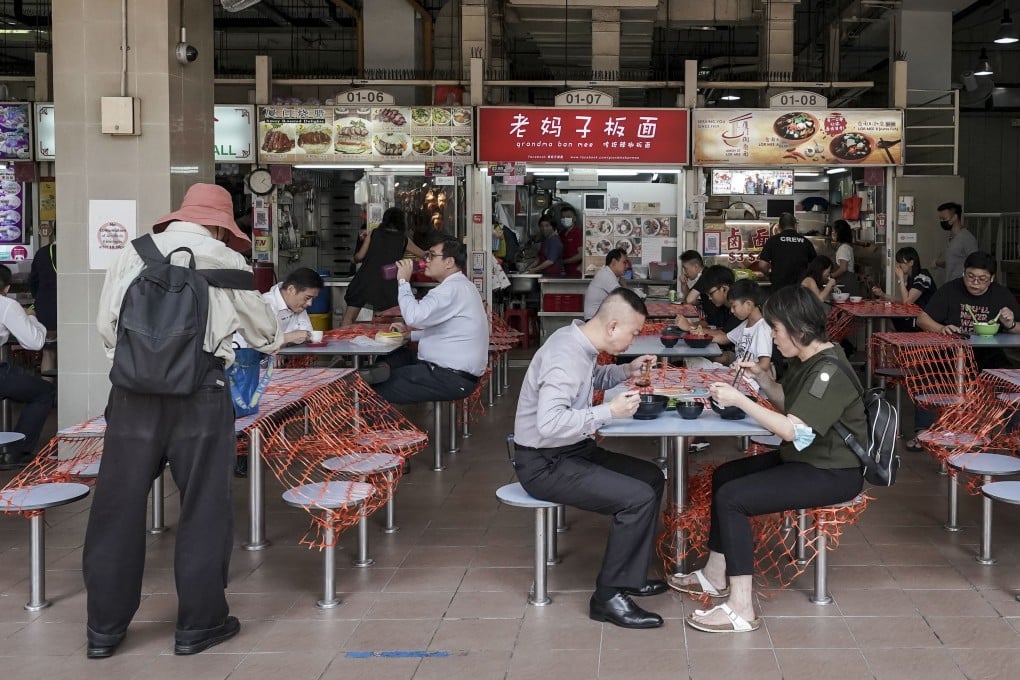Singapore’s ‘living with Covid-19’ road map suffers setback as restrictions return
- For four weeks – starting Thursday, until August 18 – restaurant dining will be banned and social gatherings will be restricted to groups of two
- Officials previously said they were preparing to treat Covid-19 as endemic, citing public ‘battle weariness’

Officials on Tuesday confirmed all restaurant dining will be barred, social gatherings – including visits to households – will be restricted to two people and wearing masks will be mandatory for indoor sporting activities. The tightened restrictions will last until at least August 18, the coronavirus task force said.
The National Day Parade planned for August 9 will go ahead but its scale will be reviewed.
“Some people have also asked why we are tightening measures, if we are planning to live with Covid-19 eventually, and how this fits into our endemic Covid plan,” said Gan Kim Yong, co-chair of the coronavirus task force.
“Our direction has not changed. However, when we outline our plans to live with Covid. We also emphasise that we needed to significantly raise our vaccination rate,” he said, adding that infections needed to be kept under control to protect the unvaccinated, especially the elderly.